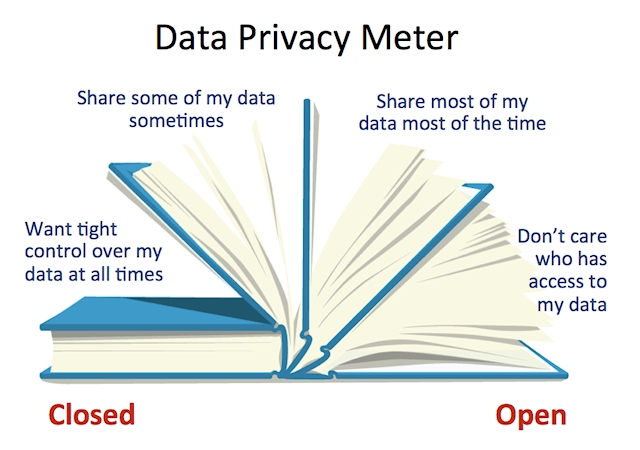Cybersecurity studies - how many does that make this year, 12...15?
 |
| No one keeps a secret for long |
Has anyone noticed?
Almost daily we are being treated to the findings of yet another cybersecurity report designed (and not by accident, I might add) to scare the living bejesus out of us.
For some reason, everytime I see a new cybersecurity report has been released, regardless of its content, I am instantly transported back to that popular 80s arcade game, Pac-Man ━ that canary yellow, jaw-chomping, insatiable dot eater, whose 8-bit
wakka-wakka wav sound file was the inspiration for Shakira’s
2010 World Cup Waka-Waka theme song, I’m guessing. OK, that’s not even close.
This Pac-Man, however, has my face on it and I’m being chased around an ever increasingly, difficult-to-survive, digital maze by 4 hungry little chomping “ware” ghosts -
adware, malware, spyware and ransomware. Actually, any 80s arcade game is a great metaphor for today’s cyberattacks ━ Joust, Frogger, Space Invaders, Caterpillar, even Q*Bert ━ they’re all coming to get you, the hero, and you know that, sooner or later, you’re going to die. There’s no escape.
I may be wrong but it’s as if these reports are
being released almost simultaneously with the news of some cyberattack. And that makes me wonder if somehow security developers might be in cahoots with code hackers.
I don’t want to belittle the gravity or consequences of these attacks ━ they are real. But it’s not surprising either that most of these cyberreports originate in the US, the masters of fear mongering.
Americans live off fear; just look at their news and adverts. It’s how they make their money. They spread fear and get you to buy stuff. Erectile dysfunction? We have a pill; Weird, suspicious looking neighbors? We have guns; Fear of illegal immigrants? We’ll build a wall; Running out of oil? We’ll start a war somewhere. All you have to do is pay.
In fact, this heightened state of collective paranoia has reached such a fever pitch that, just this past weekend,
a lady on a flight from Philadelphia to Syracuse reported to flight attendants that the person sitting next to her might be a terrorist because he was “writing strange things on a notepad.” It turns out the person next to her was professor Guido Menzio, an Italian economist working on some differential equations. I’m sure authorities at the Pentagon and NSA love this woman because she bought into the fear like a champion. To me, though, this woman just went off on a
(sinα / cos α). In case you’re wondering, that equation translates to
tangent. Hey, maybe I’m a terrorist, too!
So the big question remains. How do we sift through all the fear tactics with the least amount of psychological and emotional damage?
There are at least two ways. The first one is guaranteed to rid you of your fear forever. Live off the grid. Throw away everything electronic - TVs, phones, computers, cars, radios, watches, microwave ovens, trainers, etc. - basically anything with a chip in it, sell your house and belongings, buy a 60s or 70s vintage car, move out into the country far away from CCTV cameras, grow your own food and live free away from prying eyes, negative news reports, inane reality shows and doomsday-predicting politicians! Some people have done it and swear by it.
It’s a great life, if you can find it.
Just ask this fellow from Alabama. Wait...what? That’s right, if you don’t buy any stuff, the government will come for you and evict you from your own land for being “unpatriotic.” So much for freedom, then. Clearly, you’re only allowed to be as free as the stuff ‘fear’ tells you to buy.
The other way is to use common sense, the ability to act in accordance to the consequences of cause-effect, a commodity of which we are in short supply. The demographics here are quite clear: millennials are, by far, the most tech savvy group. In other words, they’re the ones who spend the most time online, and, by extension, the demographic with the least awareness for common sense. Again, I don’t blame the ordinary millennials for their lack of cybersecurity awareness. They’re programmed to be online 24/7 with no regard for consequences. It’s a trend that’s been slowly developing and taking hold since the 80s.
Those of us who are older, and hopefully wiser, know the dangers of information, i.e., data, overload. We were brought up with phrases like, “Loose lips sink ships” and “Mum’s the word.” So we’re naturally wary of all these bits of personal data flying about in cyberspace. But millennials have no such compunction; they don’t know anything else.
So, use common sense because there’s no other alternative.
- Install a good, reputable security program on all your devices. Make sure these offer VPNs and are cloud compatible.
- Install a good password manager.
- Make sure all your system devices are patched and updated.
- Don’t go putting stuff on the internet you wouldn’t want your mother to see.
- If you must do porn, go only to reputable porn sites. (yes, they exist!)
- Don’t share everything with everybody - your real life is more important than your virtual one.
- If you’re going to cheat on your spouse, do it the old fashioned way - go to a brothel and pay for it; don’t look for it online. Check out The Girlfriend Experience on Showtime.
- READ! Preferably more than 140 characters at a time. There’s a lot of great advice out there; inform yourself. We have more knowledge available to us than at any point in history, and yet, we seem to be dumber than ever before.
- Employ a “best practices” strategy.
But above all, just remember this - everything you do online is visible in some form or another. What would you like strangers to know about you...or not?




